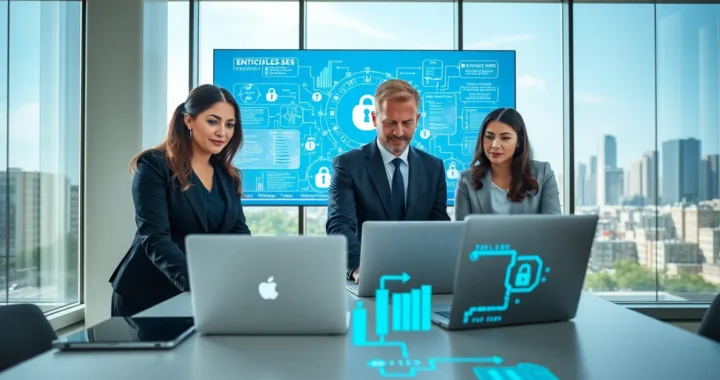Your License Limits the Maximum Session Duration to a Partner – Tips for Managing your Sessions

Your License Limits the Maximum Session Duration to a Partner
Managing sessions with partners can be a complex task, especially when your license limits the maximum session duration. In such situations, it becomes crucial to find effective strategies to optimize your session management and ensure smooth collaboration with your partners. In this article, I’ll share some valuable tips for managing your sessions within the limitations set by your license.
Firstly, it’s important to communicate openly and transparently with your partners about the session duration restrictions imposed by your license. By setting clear expectations from the beginning, you can avoid any misunderstandings or frustrations later on. Discussing these limitations upfront allows both parties to plan their activities accordingly and make the most out of each session.
Secondly, prioritize tasks and goals before starting each session. Identify the key objectives that need to be accomplished during the limited time available. By focusing on essential tasks first, you can maximize productivity and ensure that critical aspects are addressed within the given timeframe.
Lastly, consider utilizing tools or software that aid in efficient session management. There are various collaboration platforms available that offer features like automatic time tracking, reminders, and notifications to help you stay within the allowed duration while maintaining a productive workflow.
By implementing these tips and being proactive in managing sessions within your license limitations, you can maintain strong partnerships with your collaborators while optimizing productivity and achieving desired outcomes. Stay organized, communicate effectively, and make every minute count!
Understanding License Limitations
When it comes to managing your sessions with a partner, it’s crucial to have a clear understanding of the limitations imposed by your license. These limitations can play a significant role in how long your sessions can last and may impact the overall effectiveness of your collaboration. Let’s delve into this topic further and explore some key points to consider.
- Know Your Maximum Session Duration: One of the first things you need to determine is the maximum session duration allowed by your license. This information will provide you with a clear benchmark for planning and structuring your sessions effectively. Whether it’s 30 minutes, an hour, or more, understanding this limitation will help you optimize time management during each interaction.
- Plan Ahead for Longer Sessions: If your license restricts you to shorter session durations, it’s important to plan ahead accordingly. Consider breaking down complex discussions or tasks into smaller segments that can be addressed within the allocated timeframe. By careful planning and prioritization, you can ensure that each session remains productive and focused.
- Utilize Breaks Strategically: In cases where longer sessions are necessary but limited by your license, incorporating short breaks can be beneficial. These breaks allow participants to recharge mentally and physically, promoting better concentration and engagement during the remainder of the session.
- Leverage Additional Communication Channels: To maximize productivity within limited session durations, consider utilizing other communication channels outside of formal sessions. Tools such as email, instant messaging platforms, or project management software can facilitate ongoing discussions and progress updates without relying solely on scheduled meetings.
- Optimize Session Content: When time is constrained due to licensing limitations, it becomes imperative to make every minute count during each session. Prioritize essential topics or action items that require immediate attention and avoid getting sidetracked by unrelated discussions or tangents.
By understanding the limitations set by your license regarding maximum session duration with a partner, you can adopt effective strategies for managing your sessions. Remember to plan ahead, leverage breaks strategically, and optimize the content of each session to make the most out of your collaboration.

Tips for Managing Session Duration
Managing session duration is crucial when your license limits the maximum session duration to a partner. It ensures that your sessions are efficient, productive, and aligned with your goals. Here are some valuable tips to help you effectively manage your session duration:
- Set Clear Objectives: Before starting a session, define clear objectives and outcomes. This will provide focus and direction to the discussion, helping you stay on track and avoid unnecessary tangents. Communicate these objectives to all participants beforehand so that everyone is aware of what needs to be achieved within the allocated time.
- Create an Agenda: Prepare a well-structured agenda that outlines the key topics or tasks to be covered during the session. Break down each item into smaller subtasks, if necessary, and assign estimated time frames for discussion or completion. This will give you a roadmap to follow during the session, enabling better time management.
- Prioritize Topics: Not all topics may require equal attention or discussion time during a session. Determine which topics are most important and allocate more time accordingly. By prioritizing discussions based on their significance, you can ensure that essential matters receive adequate attention while still adhering to the defined time constraints.
- Use Timekeeping Tools: Incorporate digital tools or apps designed for managing meeting durations into your workflow. These tools can help monitor elapsed time, send automated reminders when nearing predefined limits, and even facilitate smooth transitions between different agenda items.
- Encourage Active Participation: Actively engage participants throughout the session by encouraging them to contribute ideas, share insights, ask questions, and provide feedback in a concise manner. Setting ground rules for participation can prevent lengthy monologues or repetitive discussions that consume excessive time.

 Is 48Ft3Ajx Harmful? What You Need to Know
Is 48Ft3Ajx Harmful? What You Need to Know  The Ultimate Guide to Off-Piste Skiing in the Alps
The Ultimate Guide to Off-Piste Skiing in the Alps  Htsicret: Understanding Its Significance
Htsicret: Understanding Its Significance  Is Vallpo523.zvc5.0o Good For Skin?
Is Vallpo523.zvc5.0o Good For Skin?  The Importance of Effective Infotainment Solutions for Safety and Navigation
The Importance of Effective Infotainment Solutions for Safety and Navigation  Progression Guide for Successful Clash Royale Boosting for Beginners Who Want to Develop Their Account Faster
Progression Guide for Successful Clash Royale Boosting for Beginners Who Want to Develop Their Account Faster